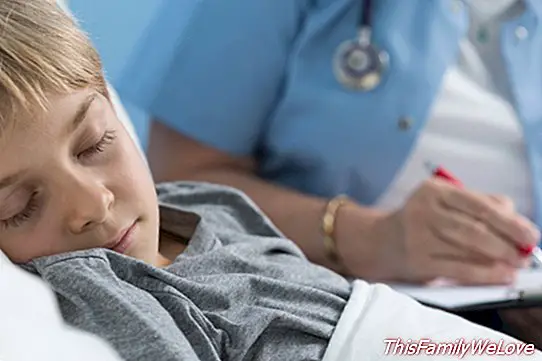10 tips to help a hospitalized child
For help a hospitalized child It is essential to create an environment in which the child feels welcomed so that he can express himself and overcome the fears that the situation he is experiencing poses. For this reason, the staff in charge of caring for hospitalized children therefore has a double task: to physically heal the patient and ensure that their stay in the hospital is as bearable as possible.
Do not forget that you are treating children, not adults, and their affective needs are very different. The impact of the disease and hospitalization is a strong impression for the hospitalized child, and can condition their subsequent emotional development.
Therefore, pediatric professionals who have to work with hospitalized children, need to put into practice knowledge to reduce the trauma that may involve the child's illness, since psychologically it also affects the family.
10 tips to keep in mind with the hospitalized child

1. Talk to the child about his illness, clarifying his doubts and fears. That will take away any concern with what may happen to you in the hospital, and it will leave you more at ease. If the child feels safe, he will adapt better to any situation.
2. Allows you to express your fears and fears. Even if you are in a hospital, the distraction through play allows children to express their fears and fears. Suggest to him to make drawings, help him to know the medical material (syringes, stethoscope, etc.), and talk with him about his recovery.
3. Helps the child to heal, always participating in medical care. You can change a bandage, take a walk with him through the corridors, help him with rehabilitation exercises, etc.
4. Bring him some books or magazines and read stories for him. Board games are also great for forgetting the routine.
5. If the medical staff allows it, invite some friends of the child come and visit him at the hospital.
6. If the stay in the hospital is long, encourage him with a surprise gift, mainly on the days when you notice that he is more discouraged.
7. It is important that the child does not feel alone or isolated. The family is an important factor in your recovery. It is convenient to promote the communication of the child with the other members of the family, through visits, letters, telephone, etc.
8. Create a daily schedule of all activities who will have to develop the child in the hospital. This way you will follow the rules more easily and safely. Example: breakfast time, analytical, lunch, game, reading, sleeping, etc.
9. Have a lot of patience and tolerance with the child. Do not forget that he is living a different situation, and surely that will affect his character and behavior.
10. Motivate for your speedy recovery. Talk about what you will do when you leave, without creating anxiety about expectations.
Isabel Martínez




